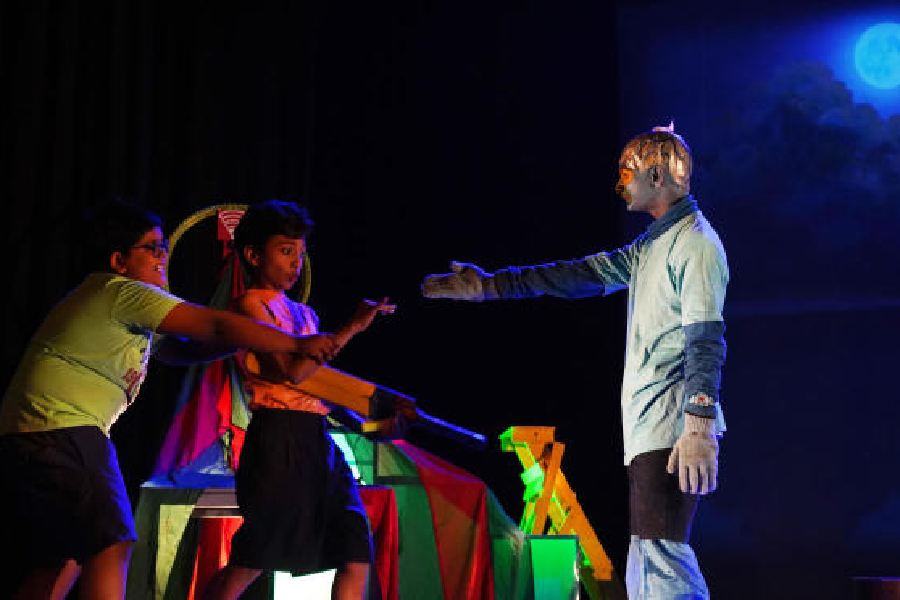For this reviewer, watching Ami Pluto (produced by Beadon Street Subham and directed by Anamitra Khan) for the first time was a one-of-a-kind experience. So overwhelming was the effect that a detached, objective review of the play turned out to be a stiff challenge, necessitating a second viewing. That repeat viewing and the intervening few weeks have made it possible to write this review with the necessary dispassion.
By all estimations, and to the understandable delight of its makers, Ami Pluto is set to go down in history as a resoundingly successful play in terms of enthusiastic audience reception. However, the true success of Ami Pluto should be located in it being able to purposefully integrate into the language of Bengali theatre the idiom of video projection. Ami Pluto is certainly not the first Bengali language play to incorporate multimedia but it breaks new ground by organically weaving projected images, animated clips and videos into the textual structure of the play so that screened audiovisual components mesh seamlessly with live performance to drive the narrative forward. In other words, the screened audiovisuals exist not merely as support for or accentuation of the live action (something that we see often in theatre, and which is not necessarily to be looked down upon), these elements are integral to the live performance in Ami Pluto. Not all directorial imagination is stellar enough to be able to broaden the accommodative potential of the very language of theatre itself — Anamitra Khan in Ami Pluto has emerged as such a director.
The other persuasive factor behind the play’s success has to be the absolutely top-notch performances by the actors. The kids, Debrup (Pluto) and Asmaan (Neel), are a treat to watch on the stage, exuding chemistry that older actors can only envy. Swaragiti (Rupsha), a slightly older teen, is assured in her role, striking all the right notes to etch out her character with clarity. The more mature actors (in reality, young men and women in their twenties) become their characters with a convincing flair that is now the signature of Subham’s repertoire. Sudeep as the planet, Pluto, is a study in controlled, focussed understatement, extracting from his frail build the endearing vulnerability that his character demands; the trill that he invents for Pluto’s voice works brilliantly. Avishek (Patrick Phair) displays outstanding energy, coupled with the ability tobring together over-the-top emoting and subtle signalling through voice and body.
The relegation of the distant, small and icy Pluto to non-planetary status by the apex global astronomical body and the subsequent quest to reinstate it to its earlier position trigger a series of events that draws into its exciting folds children, scientists, fireflies, grandparents and, of course, planet Pluto itself. Written by Debotosh Das (with cues from Steve Metzger’s Pluto Visits Earth!), Ami Pluto is one of those rare texts — in theatre and in literature — that appeal equally to young adults and mature audiences. This has been made possible by astutely blending complex international political issues with an endearing celebration of childhood and kinship. The scene in which Neel becomes one with the fireflies, with the technology of projection (screened images, light and sound) coalescing with amazingly poignant on-stage acting by the children, will go down in Bengali theatre folklore as a luminescent moment of tender, yet stirring, theatrical magic.

